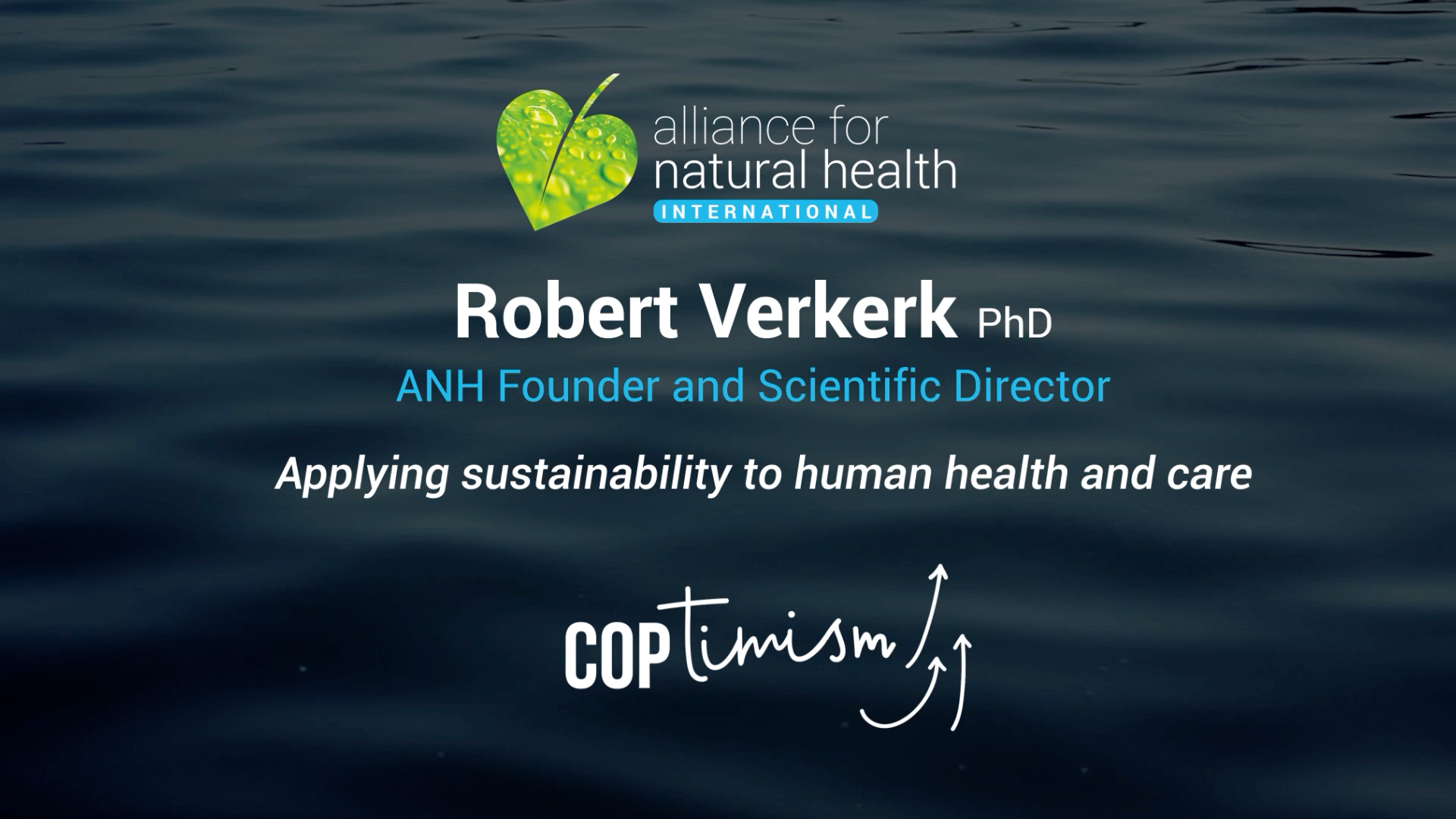Content Sections
By Rob Verkerk PhD; founder, executive and scientific director
COPtimism on the lead up to COP26
I was humbled to be invited to speak at the COPtimism event in Glasgow that has just run this week (27-28 October 2021), in the days leading up to the UK Climate Change Conference, COP26. As I wasn’t able to attend in person I was asked to provide a short statement to camera that was played during the event (see below).
The topic I was asked to talk to wasn't climate change, but rather how we might transition towards nature-based approaches to healthcare that would lead to more harmonious ways of living with the world around us.
If we’re to address the catastrophic ecological crisis that includes the Sixth Mass Extinction and associated habitat destruction as well as the many manifestations of climate change, we need to urgently change how we interact both with our external and internal environments.
Nature (not tech) based solutions
We can’t afford to wait in hope that a new technology will soon arrive that will miraculously steer us away from our current course towards inevitable devastation, which would likely include the decimation of our own species. That's not to say certain new technologies — such as those that will help create hydrogen, rather than fossil-fuel based economies — won't be seminal parts We need people at all levels of society, especially those responsible for high-level decision-making in major industrial economies (yes, politicians and business leaders), to urgently recognise that whole system, nature-based, ecologically-sensitive approaches must underpin all efforts towards human ‘progress’ going forward. That means doing a lot more than just trying to limit carbon emissions.
Whole system, nature-based solutions apply as much to resolving the great environmental challenges of our time as to the human health crisis that the events of the last 2 years have laid bare.
Check out below my 9 minute introduction to our work on transitioning towards more sustainable health systems below, as shown at COPtimism.
Feedback
In order to address both planetary and human health system failure, we need whole system, nature-based solutions that take into account and embolden all the feedback and control systems that have evolved in each system over millennia to provide resilience, even in the face of stressors. A healthy planet or a healthy human both share fully functional feedback and control systems that help each system respond dynamically to the changing environments to which they are exposed.
When either system is pushed to the edge of its adaptive range, these feedback loops begin to break down. It’s mind-boggling, and, for many, too frightening, to realise that our planet has already been pushed to this point by human activity. It’s too early to know how fully the planet’s health could be recovered. The bodies of millions are similarly compromised through inappropriate diets, lifestyles and exposure to human-made pollutants.
System(ic) change
We need now, more than at any other time in human evolution, systemic change to the economic, political and social systems that have set us on this trajectory. Tweaks around the edges simply won’t be enough as we can all see from the abject failure in the global response to meeting the emissions targets set in the Paris Agreement at COP21.
While global leaders continue to believe more and more global (central) control is the way to resolve the climate crisis, it is worth considering the inherent resilience of those who’ve, all along, maintained their close connection to nature and generally been decentralised in their operation. There is a lot we can still learn from the remaining 476 million indigenous people on our planet.
The wisdom of the connected
Cass Madden, coordinator and project manager for the secretariat of the International Network of Mountain Indigenous Peoples, explains below how some indigenous communities have been barely impacted by the covid-19 crisis that’s set much of the so-called developed and industrialised world into a tailspin:
“Indigenous mountain communities – from Peru to Kenya to Tajikistan, Bhutan and Papua New Guinea – were able to ensure the food security and health of their communities thanks to their localised, biodiverse, circular food systems founded on ancestral knowledge and cultural values.”
Human health and resilience is influenced profoundly by the ways we humans interact with the natural and human-made world around us. But since technology has disconnected so much of the world’s population from the natural world, the starting point must involve building our species’ reconnection with, and respect for, nature.
To do this, we need to engage much more proactively than we do when we watch beautiful nature documentaries through a video screen.
>>> Find out more about the ‘Great Health System Reset’ and our blueprint for health system sustainability.
>>> Are you a critical thinker? Someone who likes to forge your own path in life, making your decisions based on your own research and independent thought? Do you believe in freedom of choice, liberty and sovereignty of the individual? Are you passionate about health and nature? Have you had #Enough? Yes? You sound like just an ANH Pathfinder. Have you joined our growing community yet?
>>> Visit www.covidzone.org for our extensive repository of over 180 articles since 12th March 2020
We're part of the #enoughmovement
Because enough is enough and — together — we're enough!
Experience the growing solidarity - and join too!

>>> Return to the homepage








Comments
your voice counts
There are currently no comments on this post.
Your voice counts
We welcome your comments and are very interested in your point of view, but we ask that you keep them relevant to the article, that they be civil and without commercial links. All comments are moderated prior to being published. We reserve the right to edit or not publish comments that we consider abusive or offensive.
There is extra content here from a third party provider. You will be unable to see this content unless you agree to allow Content Cookies. Cookie Preferences